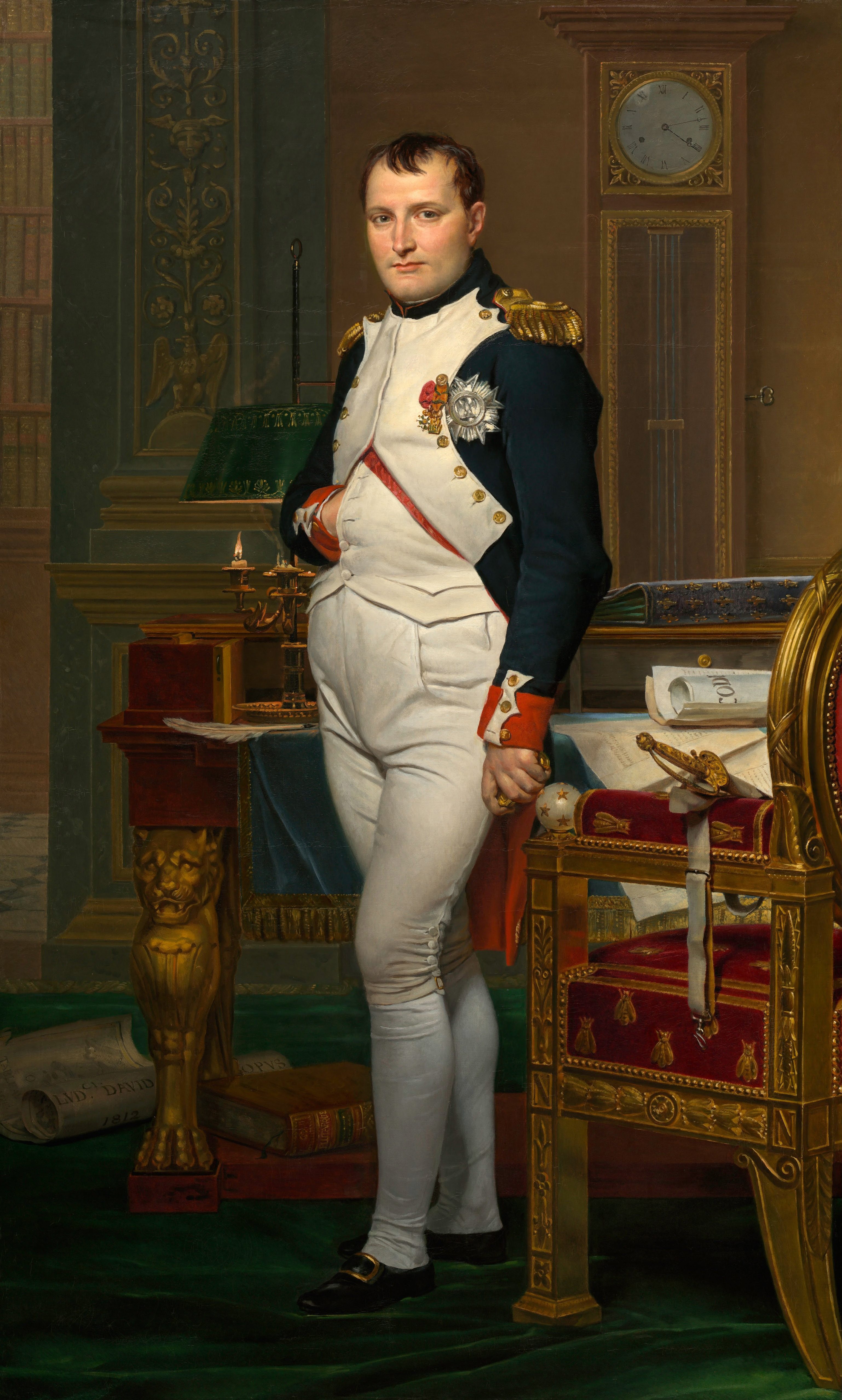Bonaparte Napóleon híres idézetei
Bonaparte Napóleon idézetek
Bonaparte Napóleon: Idézetek angolul
Napoleon : In His Own Words (1916)
Kontextus: It is a mistake, too, to say that the face is the mirror of the soul. The truth is, men are very hard to know, and yet, not to be deceived, we must judge them by their present actions, but for the present only.
François-René de Chateaubriand, in Mémoires d'outre-tombe (1848 – 1850), Book VI, Ch. 8 : Comparison of Washington and Bonaparte
About
Kontextus: Bonaparte robs a nation of its independence: deposed as emperor, he is sent into exile, where the world’s anxiety still does not think him safely enough imprisoned, guarded by the Ocean. He dies: the news proclaimed on the door of the palace in front of which the conqueror had announced so many funerals, neither detains nor astonishes the passer-by: what have the citizens to mourn?
Washington's Republic lives on; Bonaparte’s empire is destroyed. Washington and Bonaparte emerged from the womb of democracy: both of them born to liberty, the former remained faithful to her, the latter betrayed her.
“I may have had many projects, but I never was free to carry out any of them.”
Conversation with Emmanuel, comte de Las Cases (11 November 1816), Mémorial de Sainte Hélène, v. 4, p. 133 http://books.google.com/books?id=945jAAAAMAAJ&pg=PA133.
Kontextus: I may have had many projects, but I never was free to carry out any of them. It did me little good to be holding the helm; no matter how strong my hands, the sudden and numerous waves were stronger still, and I was wise enough to yield to them rather than resist them obstinately and make the ship founder. Thus I never was truly my own master but was always ruled by circumstances.
“The tiger has arrived at Gap.”
Le Moniteur Universel, March 11, 1815.
About
Változat: The Emperor has arrived at Fontainbleau.
“The populace judges of the power of God by the power of the priests.”
Napoleon : In His Own Words (1916)
“You cannot treat with all the world at once.”
Political Aphorisms, Moral and Philosophical Thoughts (1848)
As quoted in The Story of World Progress (1922) by Willis Mason West, p. 437
Attributed
Søren Kierkegaard The Concept of Anxiety, Nichol p. 98-100 (1844)
About
“A king is sometimes obliged to commit crimes; but they are the crimes of his position.”
Political Aphorisms, Moral and Philosophical Thoughts (1848)
“Orders and decorations are necessary in order to dazzle the people.”
Forrás: Political Aphorisms, Moral and Philosophical Thoughts (1848), p. 248
“Audacity succeeds as often as it fails; in life it has an even chance.”
Napoleon : In His Own Words (1916)
Napoleon I of France in Précis des guerres de César, Gosselin, 1836, edited by Comte Marchand, p. 237. This work was written by Napoleon during his exile on St. Helena. Translated by Ziad Elmarsafy in The Enlightenment Qur'an http://books.google.fr/books?id=gkIKAQAAMAAJ.
Változat: Mahomet was a great man, an intrepid soldier; with a handful of men he triumphed at the battle of Bender (sic); a great captain, eloquent, a great man of state, he revived his fatherland and created a new people and a new power in the middle of Arabia.
Act of Abdication (4 April 1814)
“The Mohammedan religion is the finest of all”
Talks of Napoleon at St. Helena with General Baron Gourgaud, together with the journal kept by Gourgaud on their journey from Waterloo to St Helena (1903), pp. 279–280 http://archive.org/stream/talkofnapoleonat007678mbp#page/n321/mode/2up
Letter to his uncle, Joseph Fesch (June 1791), as quoted in A Selection from the Letters and Despatches of the First Napoleon. With Explanatory Notes (1884) edited by D. A. Bingham, Vol. I, p. 24
“A man who has no consideration for the needs of his men ought never to be given command.”
Napoleon : In His Own Words (1916)
“You must not fear death, my lads; defy him, and you drive him into the enemy's ranks.”
As quoted in Dictionary of Quotations from Ancient and Modern English and Foreign Sources (1899) by Rev. James Wood, p. 567
Attributed
Political Aphorisms, Moral and Philosophical Thoughts (1848)
“In war, character and opinion make more than half of the reality.”
Napoleon : In His Own Words (1916)
Political Aphorisms, Moral and Philosophical Thoughts (1848)
Attributed in Monarchy or Money Power (1933), by R. McNair Wilson. No primary source for this is known.
Attributed
“The word impossible is not French.”
Le mot impossible n'est pas français.
Letter to General Jean Le Marois (9 July 1813), quoted in Famous Sayings and their Authors (1906) by Edward Latham, p. 138
Variant translation: You write to me that it is impossible; the word is not French.
Variant attribution: Impossible is a word to be found only in the dictionary of fools.
The letter says: "Ce n'est pas possible", m'ecrivez-vous: cela n'est pas français. Original Source http://books.google.es/books?id=TqvSAAAAMAAJ&pg=PA479&dq=correspondance+napoleon+Ier+9+juillet+1813&hl=es&ei=tT3ATqzaNImu8gP01dH9Aw&sa=X&oi=book_result&ct=result&resnum=1&ved=0CC4Q6AEwAA#v=onepage&q&f=false
Letter from St. Helena (28 August 1817); as quoted in The St. Helena Journal of General Baron Gourgaud, 1815-1818 : Being a Diary written at St. Helena during a part of Napoleon's Captivity (1932) as translated by Norman Edwards, a translation of Journal de Sainte-Hélène 1815-1818 by General Gaspard Gourgaud, t.2, p. 226
Napoleon : In His Own Words (1916)
